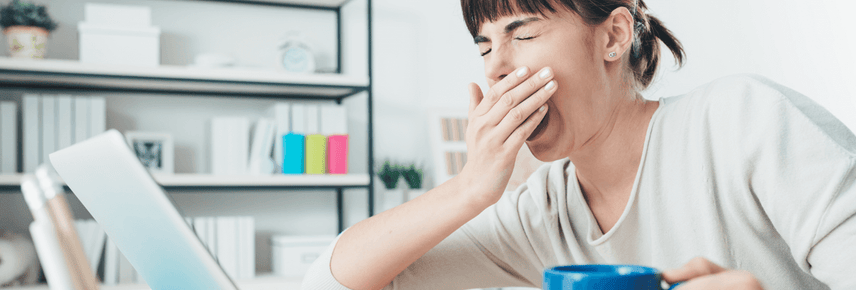_1.png?width=622&height=350&format=png&quality=95)
How to avoid Christmas food comas
Find yourself feeling overwhelmingly full and ready to close your eyes, curl up and take a nice nap after eating? Especially when it comes to Christmas lunch? You’re not alone and you’re not imagining it.
That heavy and drowsy feeling after eating a big meal is known as a ‘food coma’ and it’s so common that the term was added to the Oxford English Dictionary in 2014. To find out more, we asked dietitian Dr Tim Crowe to answer the top questions about food comas:
Are food comas real?
They certainly are. So much so they have a fancy scientific name – postprandial somnolence. A food coma is usually described as a feeling of extreme fatigue or lethargy that can last for several hours. While the cause is up for debate, there is no confusion about the symptoms: laziness and heaviness, usually accompanied by bloating and a feeling of tightness in the belly.
What causes a food coma?
The exact cause of food comas is unclear as there are many things going on in the body after you eat a big meal. Many of which link back to a feeling of tiredness. Here’s a few:
1. Digestion: When our bodies are busy digesting a meal, blood is diverted to the stomach and intestines to help pick up and transport the nutrients in the food. This means there’s less blood in other parts of the body, such as the brain and muscles, which can leave some people feeling a little light-headed or tired.
2. Hormones: There are many hormones involved in helping our bodies digest food. One of these is Cholecystokinin (CCK). It’s also been linked to making us feel drowsy, most likely by influencing the production of serotonin and melatonin. Serotonin is the feel good hormone well known for positively affecting mood and creating a feeling of relaxation and sleepiness. While melatonin is the ‘hormone of sleep’, helps to regulate our sleep-wake cycle.
3.‘Rest and digest’: digestion has flow on effects on the body’s autonomic nervous system. When we’re busy digesting our food, we move away from the ‘fight or flight’ stress response and towards ‘rest and digest’. The more we eat, the further we move towards rest and digest.4. Circadian rhythm: A circadian rhythm is a natural, internal process that runs on a 24-hour cycle and is part of the body’s internal clock. As part of this cycle your body naturally dips in energy around 1 or 1.30pm. This will happen whether or not you’ve eaten lunch. In fact eating lunch at this time doesn’t give you an energy boost. It has the opposite affect. If Christmas lunch coincides with the dip in your circadian rhythm, the feeling of sleepiness can be magnified. Here are 5 foods that can help you beat that afternoon slump.
5. Overeating: A final reason you feel ready for a nap after lunch could simply be the amount you’ve eaten. Large portions of food require larger amounts of energy to help break it all down, meaning it’s tough to stay awake.
.png)
Are there certain foods that cause food comas?
There is some science to show high GI foods can trigger sleepiness. These are typically highly processed, refined, or sugary foods like white breads, white rice, rice cakes, cakes and biscuits, lollies and soft drink. When we eat high GI foods our bodies produce more insulin. With more insulin circulating in the blood, the brain can take up more of the amino acid tryptophan, which triggers more serotonin to be released – hello happy sleepy hormone.
Dr Crowe’s top 6 tips to minimise food comas:
- Don’t overeat. The bigger the meal, the bigger the food coma.
- Don’t go carb crazy. Plenty of protein may help reduce the food coma effect.
- Avoid heading straight to the couch after a meal. A small amount of activity will help use up excess glucose in your bloodstream – a good excuse for backyard cricket after Christmas lunch.
- Consider having an earlier lunch (just before midday) to avoid amplifying the early afternoon dip, part of our body’s natural circadian rhythm.
- Choose carbohydrate foods that have a lower GI, such as wholegrain bread and pasta, legumes, most fruits and Aussie sweet potato.
- Drink plenty of water to stay hydrated and avoid alcohol, as it’s a sedative.
You can follow Dr Tim Crowe through his Thinking Nutrition podcast – available from www.thinkingnutrition.com.au/podcast/.

The latest nutrition advice, plus health and wellness tips delivered to your inbox monthly

